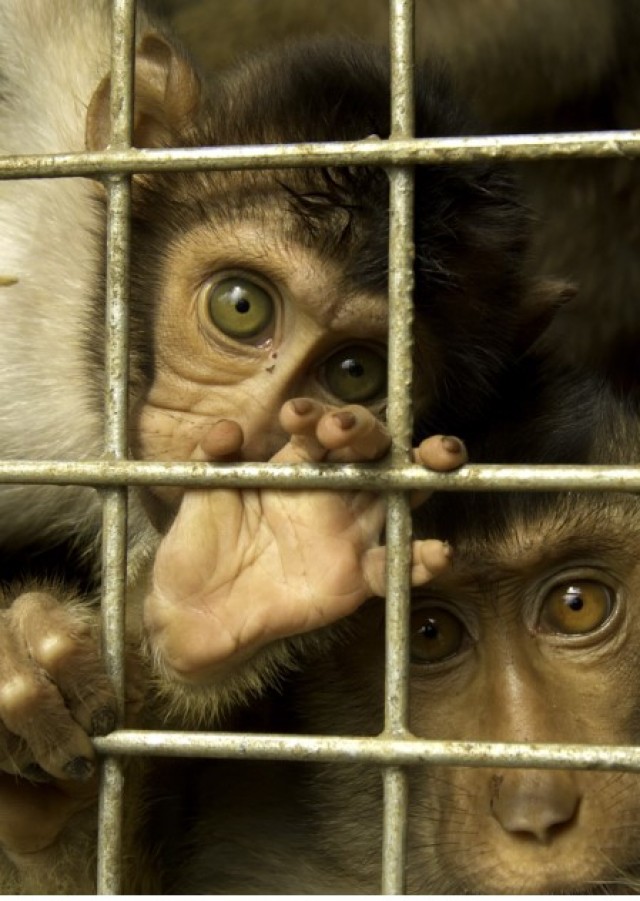Think that pet monkeys on social media are cute? Think again.
Macaques are being abused as pets online and social media platforms are failing to protect them, animal experts warn in new report frim SMACC which includes International Animal Rescue
(Isstories Editorial):- East Sussex, United Kingdom Oct 5, 2023 (Issuewire.com) – Macaques being kept as pets are being physically and psychologically abused for social media content, states a new report released today. Compiled by a coalition of 20 animal protection organizations, including International Animal Rescue, the report “The cruelty you don’t see: The suffering of pet macaques for social media content” documents evidence of content creators openly abusing monkeys on social media sites such as Facebook and YouTube.
More on Isstories:
- BestAgents.us proudly announces the recipients of its Top Real Estate Professionals for 2024.
- Brittany Fischer, Recognized by BestAgents.us as a 2024 Top Agent
- Kathryn Schaefer, Recognized by BestAgents.us as a 2024 Top Agent
- Maria Lewis, Recognized by BestAgents.us as a 2024 Top Agent
- Leigh Calvert, Recognized by BestAgents.us as a 2024 Top Agent
The Asia for Animals’ Social Media Animal Cruelty Coalition (SMACC) conducted research into this online trend, which it says is inherently abusive and is being fueled by social media. Between September 2021 and March 2023, SMACC recorded 1226 content links from Facebook, Instagram, TikTok and YouTube, showing macaques kept as pets. The content ranged from seemingly “innocent” treatment to the violent and graphic torture of macaques and collectively had over 12 billion views.
The research found:
- 13% of the content features deliberate psychological torture: macaques were intentionally made to feel fear and distress in response to scaring, teasing and being denied food
- 12% showed macaques being physically tortured, including being beaten, burnt alive, limbs amputated and many of them tortured until death
- Shockingly, 60% of the links showed pet macaques being directly physically abused
- All macaques featured were likely to experience psychological distress due to their treatment.
- Collectively, the links had been viewed 12,054,378,907 times at the time of analysis
- Top three platforms with the most content featuring macaques as pets were Facebook (60%), YouTube (24%), and TikTok (13%).
Alan Knight OBE, President, International Animal Rescue (IAR)“The keeping of macaques as pets is abhorrent to anyone who cares about animals. It is never acceptable to keep a monkey in captivity, whether with the intention of being cruel or kind to it. Macaques suffer terrible psychological and physical damage through living in confinement and being forced to behave in a way that is completely unnatural to them. As for the deliberate abuse and torture inflicted on so many macaques and posted on social media, it’s hard to find words to describe the perpetrators and the individuals who view these horrific scenes. Their behaviour is depraved beyond belief and every action must be taken to stop it.”
Videos showing monkeys kept in households, dressed in clothing and wearing diapers are popular on social media, with some videos reaching millions of views, and attracting comments on how “cute” and entertaining the content is. This treatment of macaques, usually infants, causes long-lasting physical and psychological damage. Clothing macaques in dresses and shoes causes them discomfort and can restrict their natural movements. In a video found on YouTube with four million views, a monkey is seen with a collared shirt, trousers, shoes, and a backpack. When the monkey walks, they clearly are struggling, as they shuffle their feet and lean from side to side. The video’s caption states it was the monkey’s “first day of school.”
Most of the content features infant macaques, who are typically removed from their parents at a very young age, sometimes just days old, in order to be sold into the pet trade. Such maternal and social deprivation can cause severe psychological and emotional damage, including stress and behavioural issues. Macaques may start to perform behaviours known as stereotypies, such as rocking, pacing and overgrooming. Infant macaques can often be seen sucking their fingers in social media content, a coping mechanism that helps them deal with separation and loss.
Nutritional deficiencies in pet primates are also common, with diabetes being seen in many primates kept as pets, due to unsuitable diets. Restrictive environments impact their physical health and can increase frustration and aggression. When pet monkeys reach maturity, they can become difficult to handle and may even injure their owners. Many end up being rehomed to sanctuaries, or may even be released into the wild where their chance of survival is very low.
Some behaviours exhibited by macaques may be misinterpreted by viewers as positive, but actually, the animal is in distress. For example, macaques seen smiling or grinning, are indicating high stress, fear, and aggression.
You can read the full report here https://www.internationalanimalrescue.org/news/report-reveals-abuse-pet-macaques-social-media-content

International Animal Rescue UK
[email protected]
07870808166
Lime House
http://www.internationalanimalrescue.org
This article was originally published by IssueWire. Read the original article here.

































